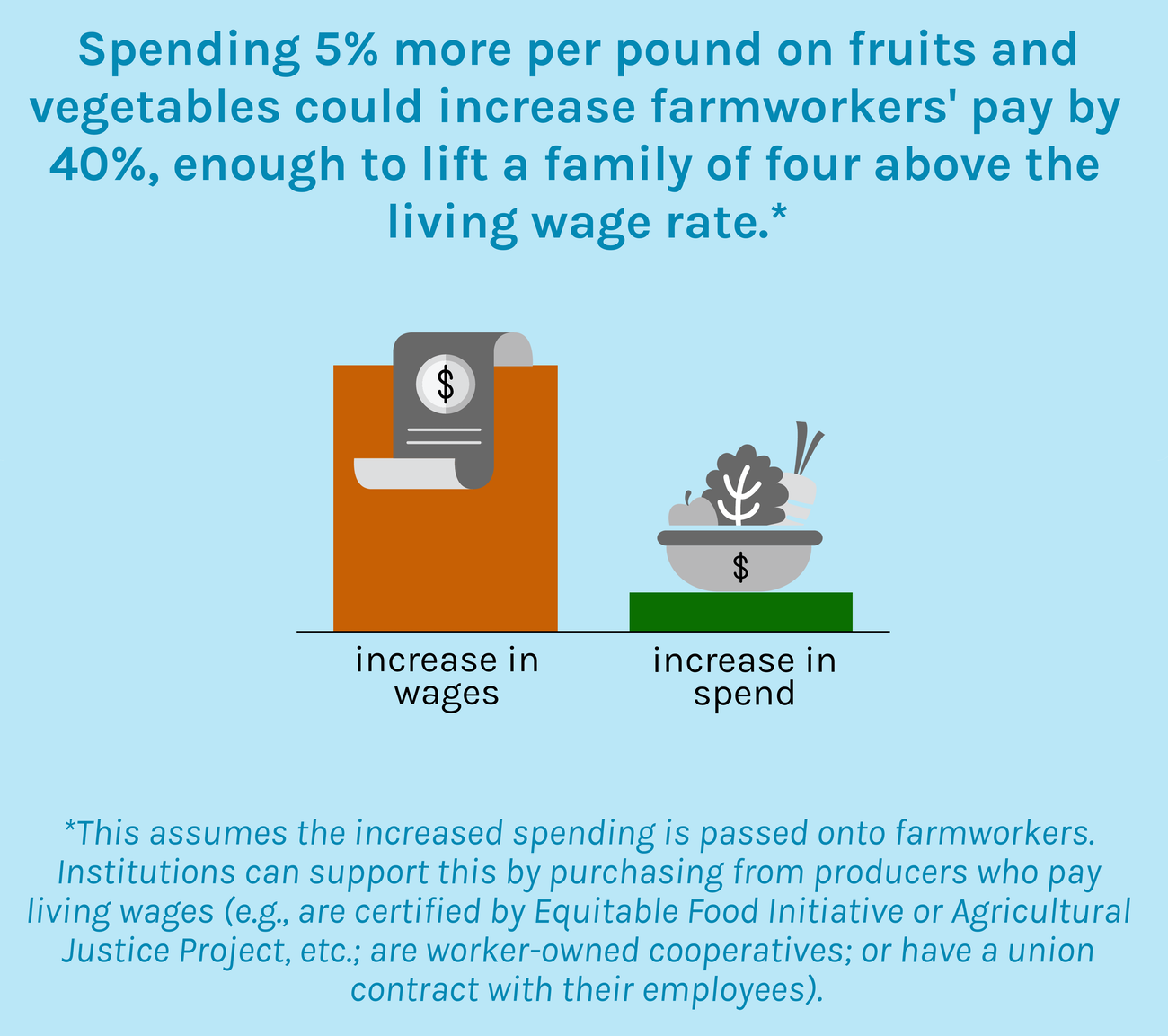Empower a Valued Workforce

Farm and food chain workers have the right to freedom of association and to bargain collectively for livable wages and healthy and safe working conditions. When institutions purchase from suppliers that are grounded in principles of workers’ rights, cooperative ownership, democratic decision-making, and migrant, racial, and gender justice, they help ensure that food workers can live and work with dignity.
Strategies

Adopt a living wage policy
Providing workers with a living wage increases financial stability and resilience for employees and employers.

Prioritize farmworkers’ rights
Ensuring suppliers respect farmworkers’ right to organize protects workers who have been historically exempt from federal labor laws.

Implement a vendor code of conduct
A code of conduct that guarantees workers' rights to freedom of association and collective bargaining empowers food chain workers to gain better wages and working conditions for themselves.
Impacts

Source: “Immigration and Farm Labor: Challenges and Opportunities” (Philip Martin). See methodology for details.
More impacts:

Unions can increase household wealth — particularly for Black and Latino households — and help close racial wealth gaps.

Strong labor standards could improve the health and wellbeing of farmworkers, communities, and our food system.

Respecting workers’ right to freedom of association and collective bargaining across the entire supply chain - and especially at companies dominating the poultry industry - could help address dangerous working conditions and low wages.
Real-World Examples
New York Ensures Equitable Housing and Safer Working Conditions for Farmworkers
Learn about more ways to advance good food policies in your community.


